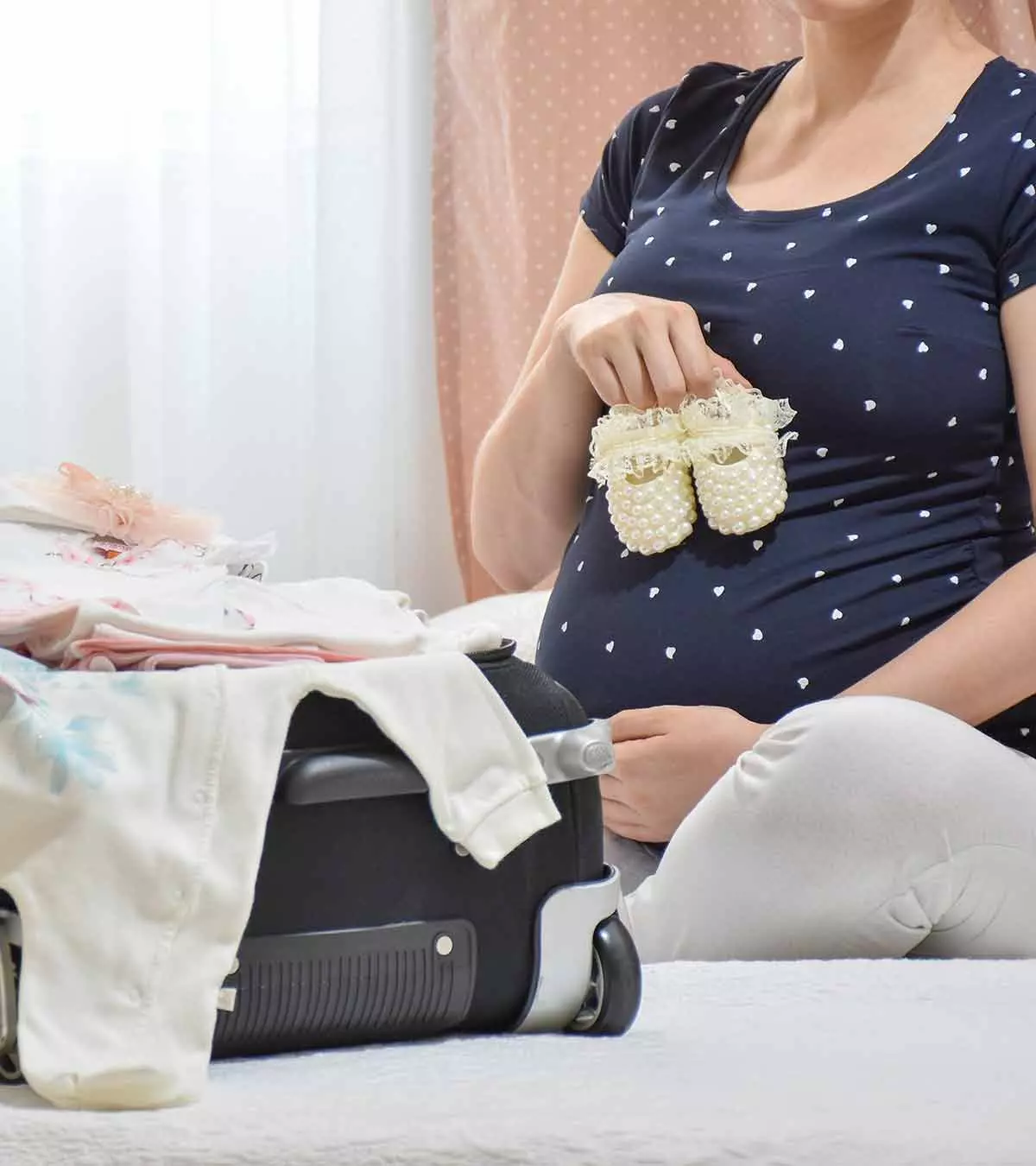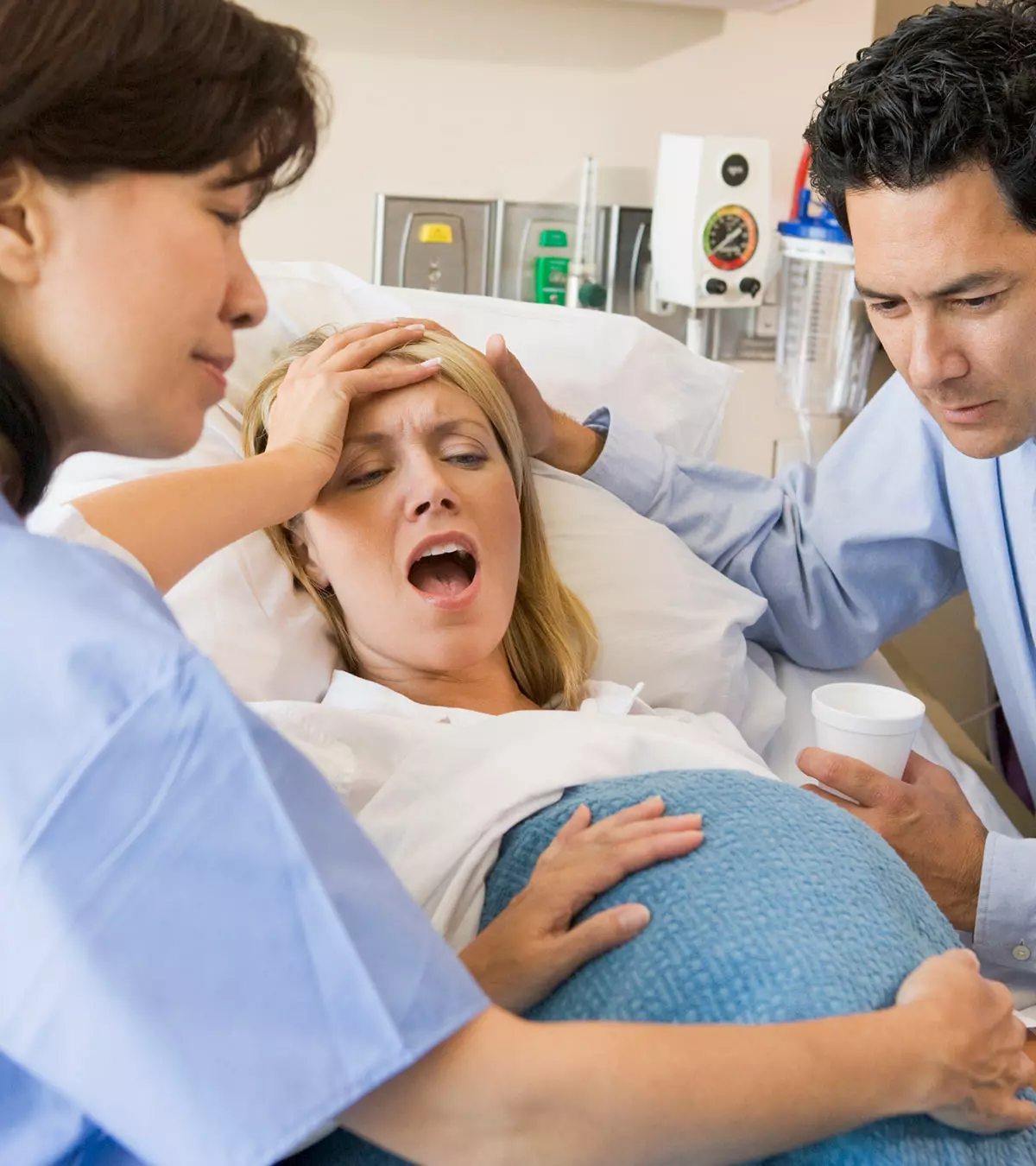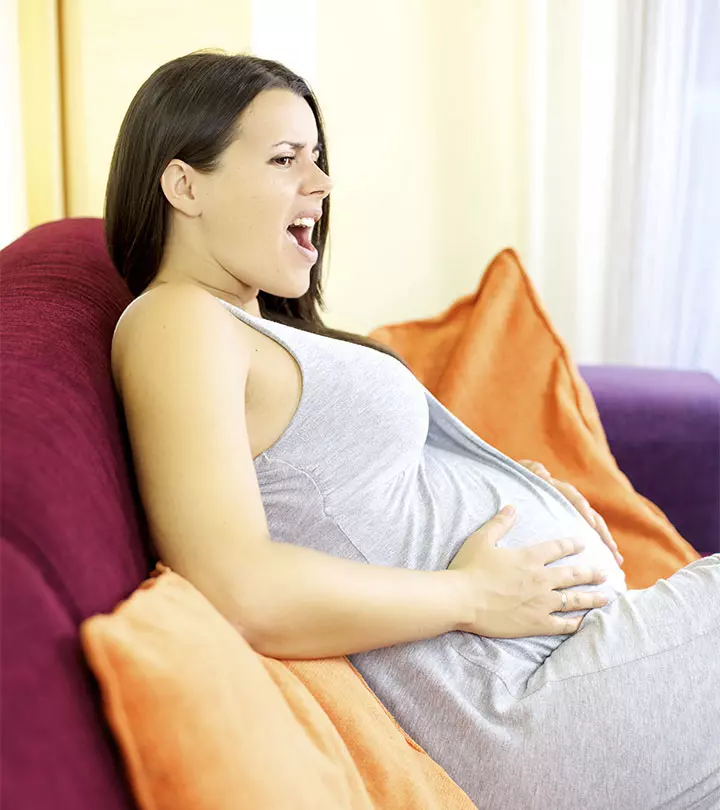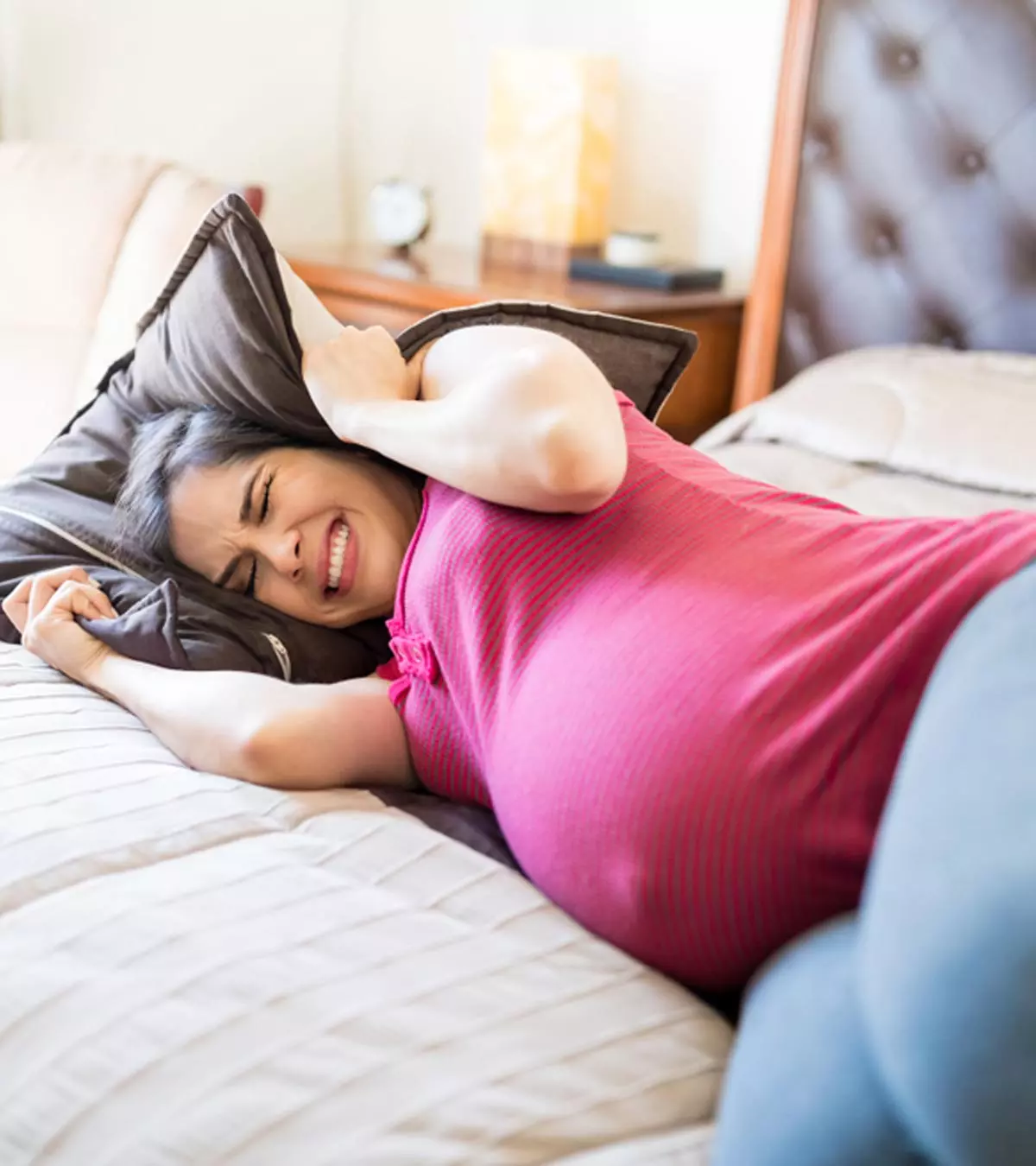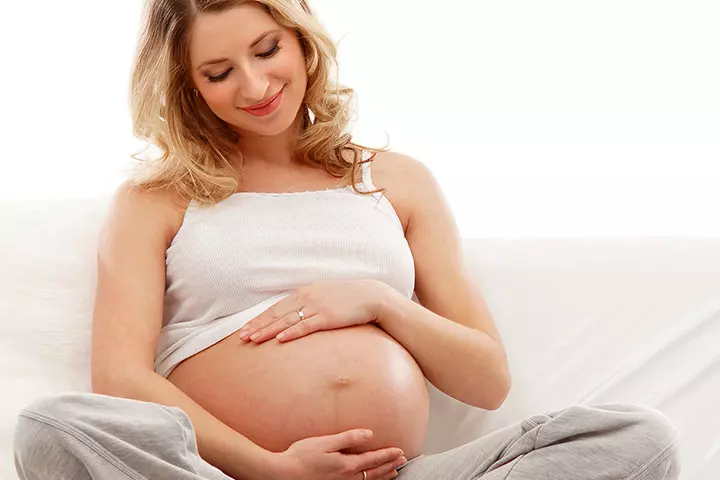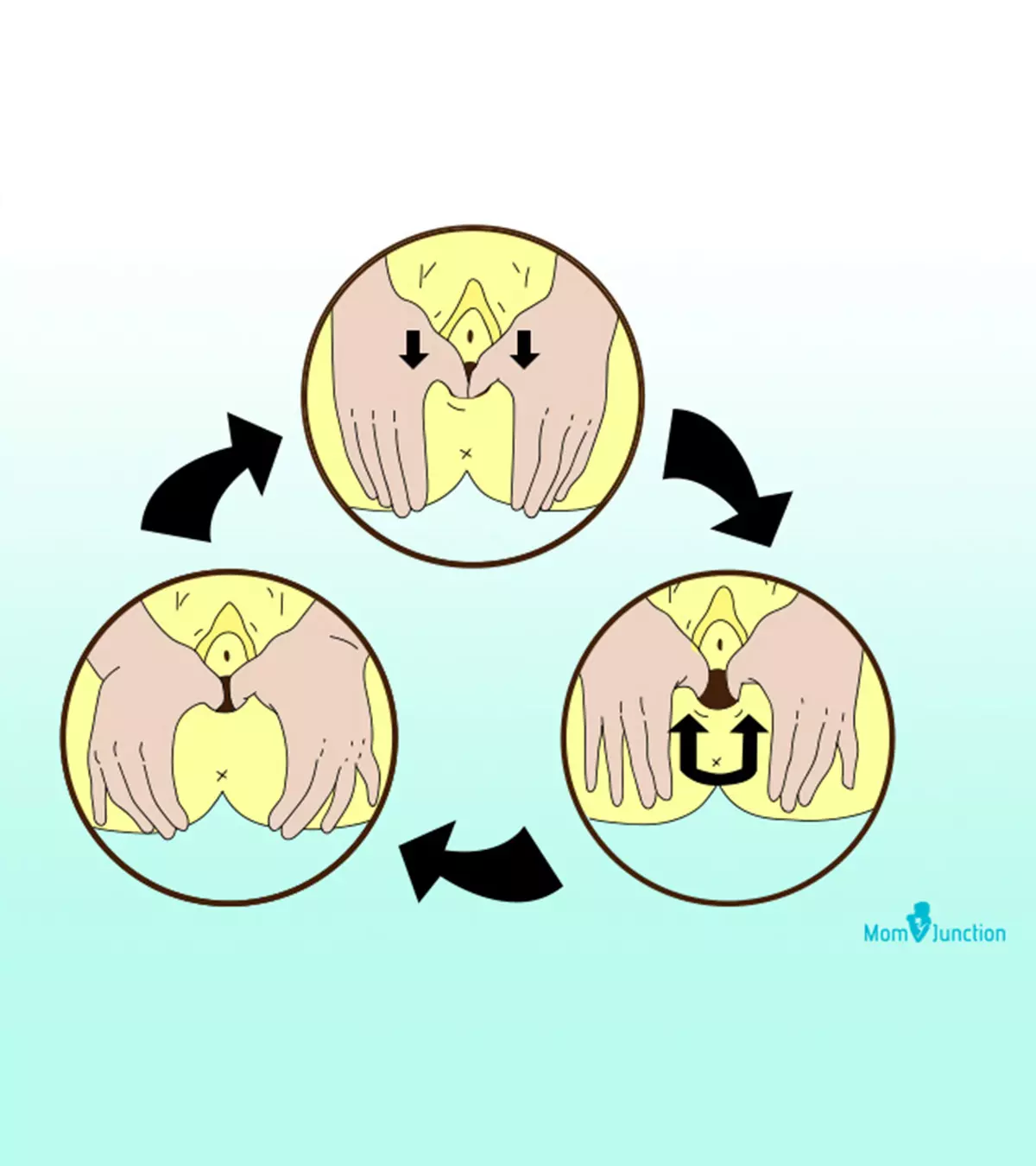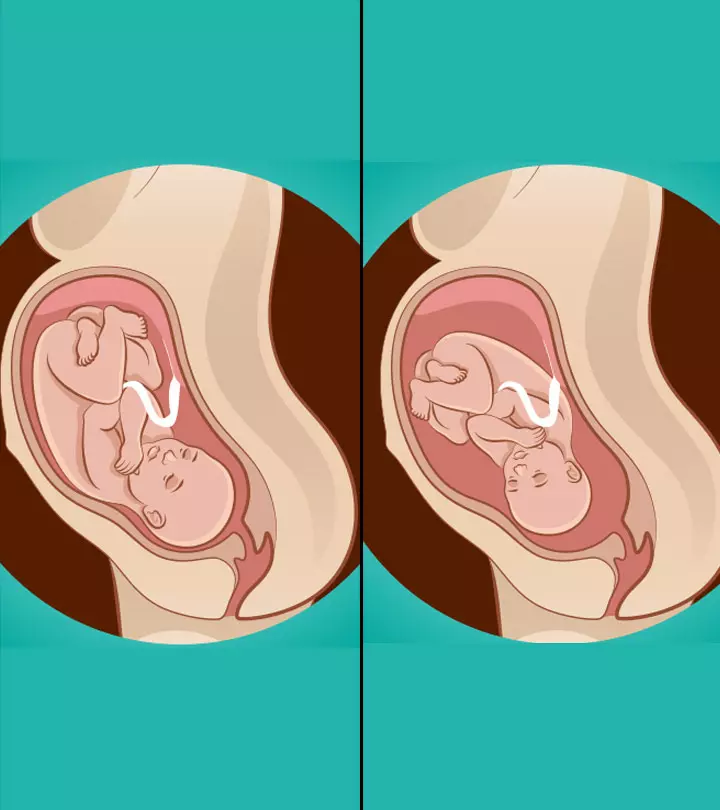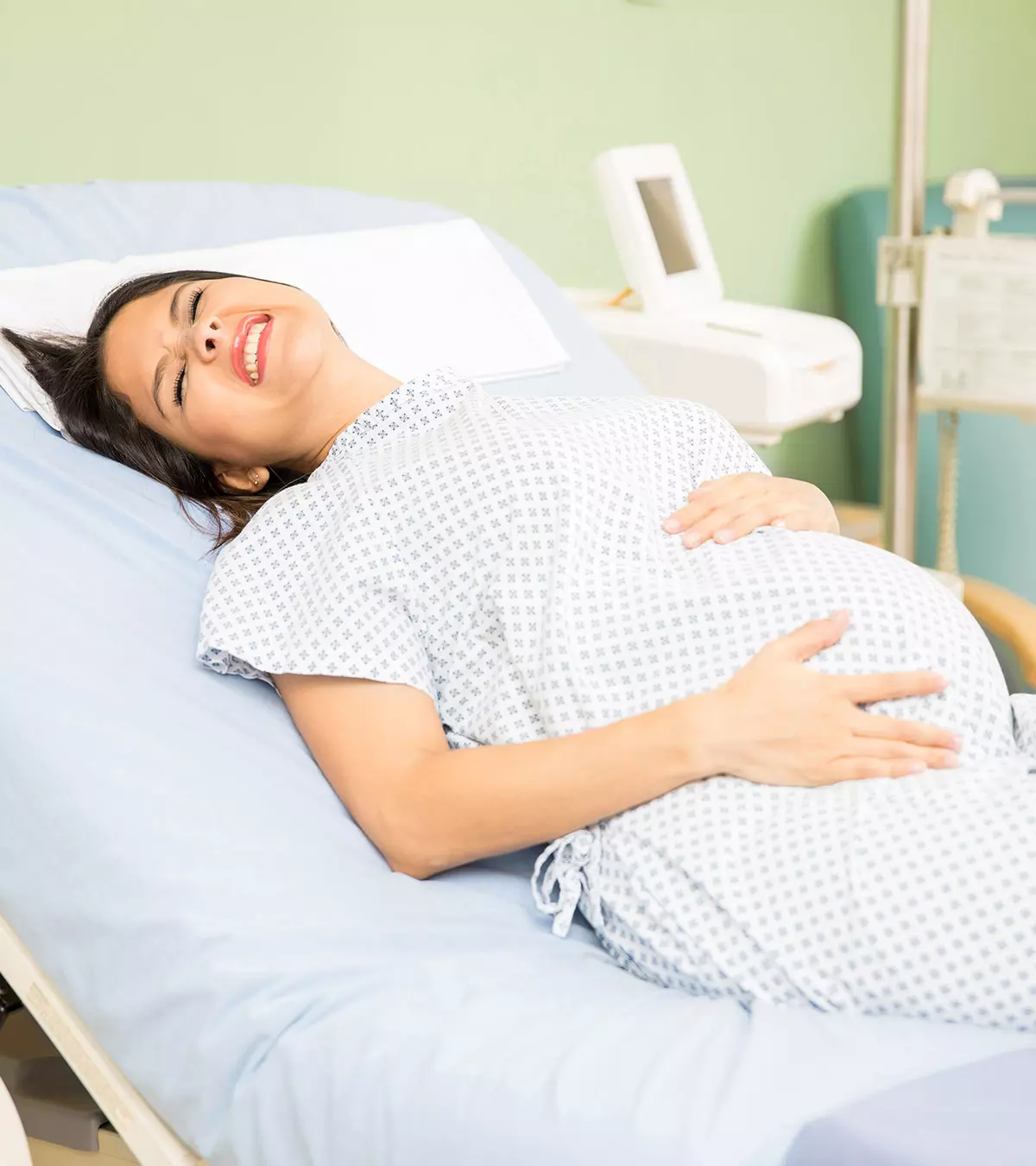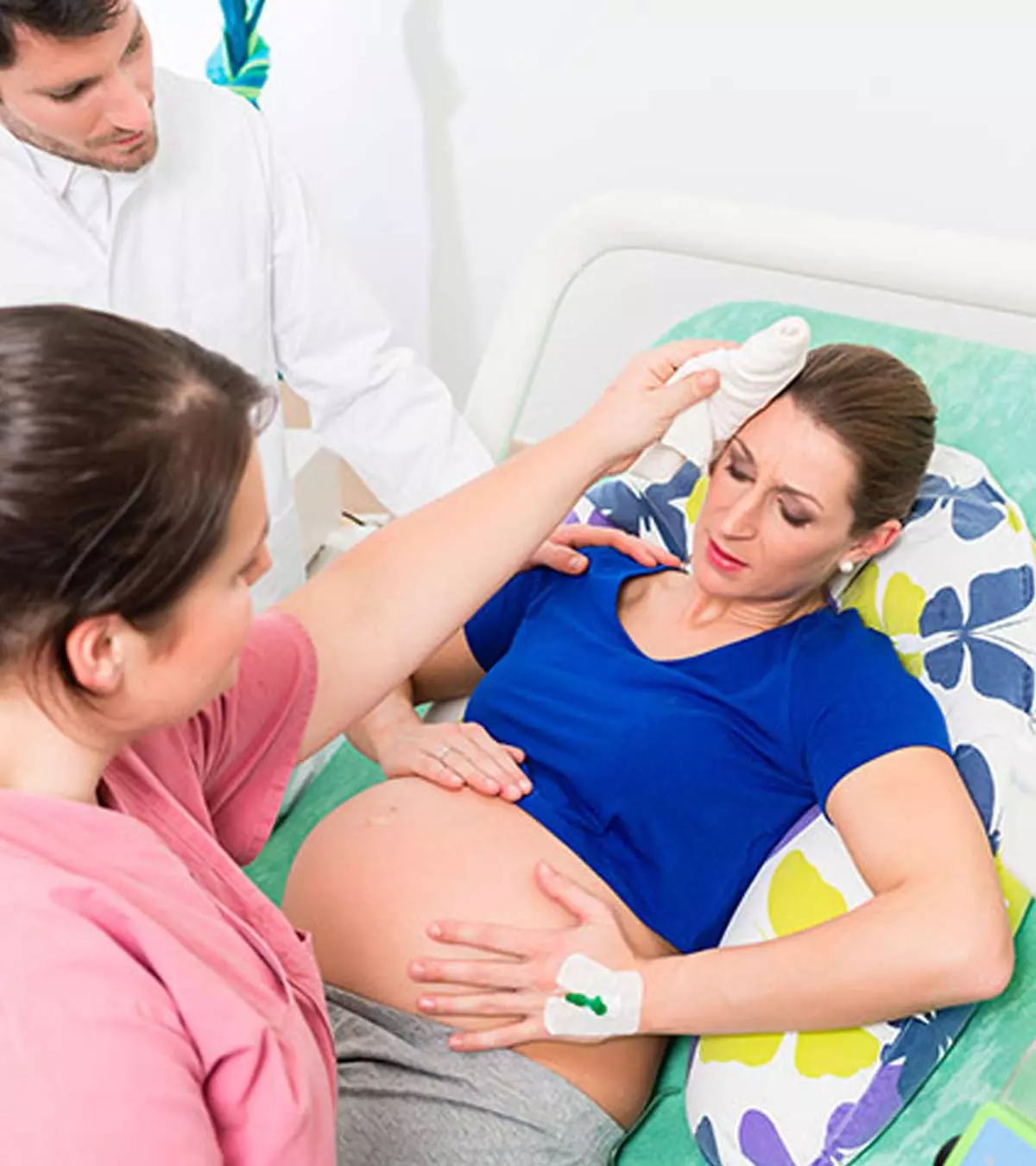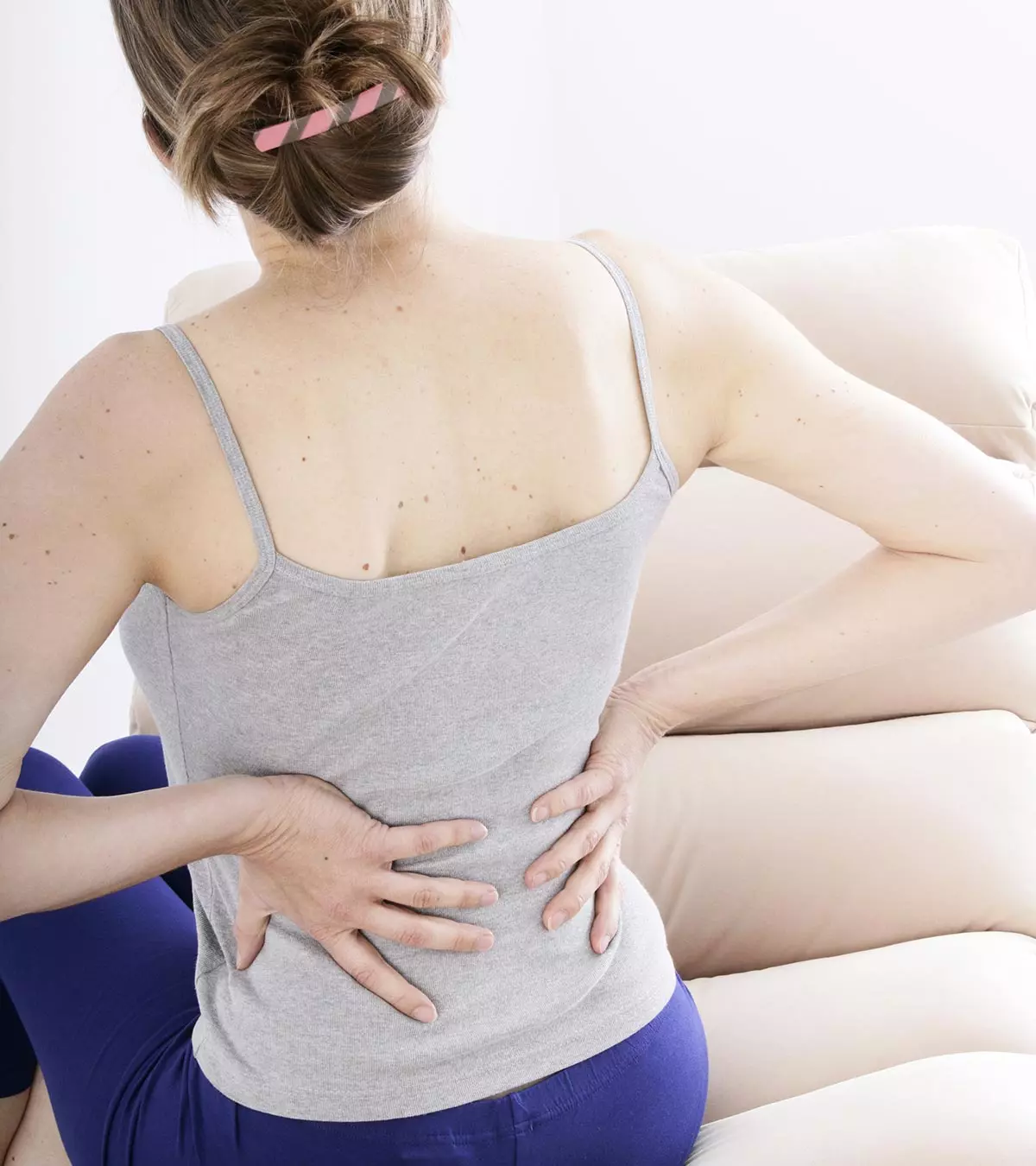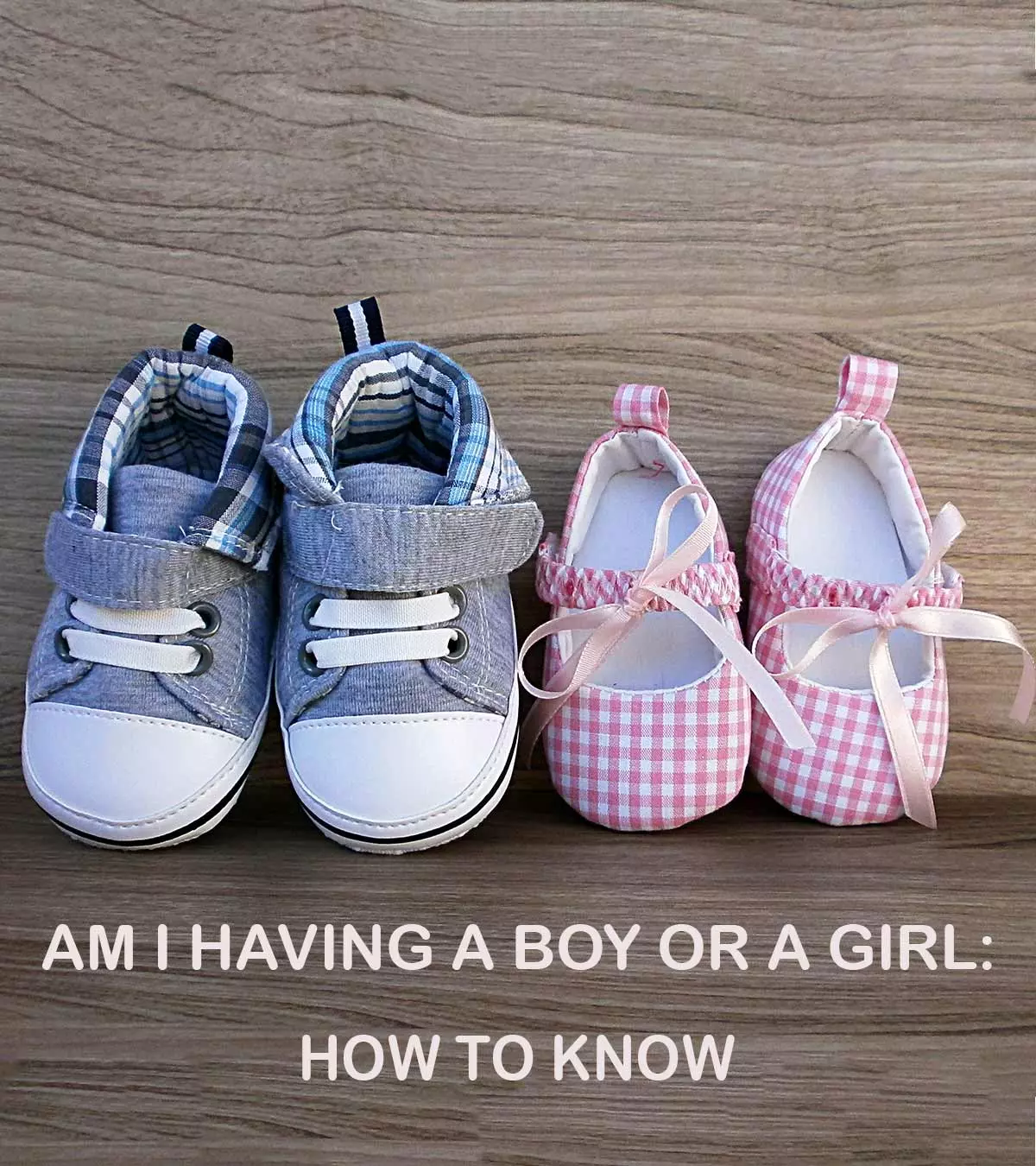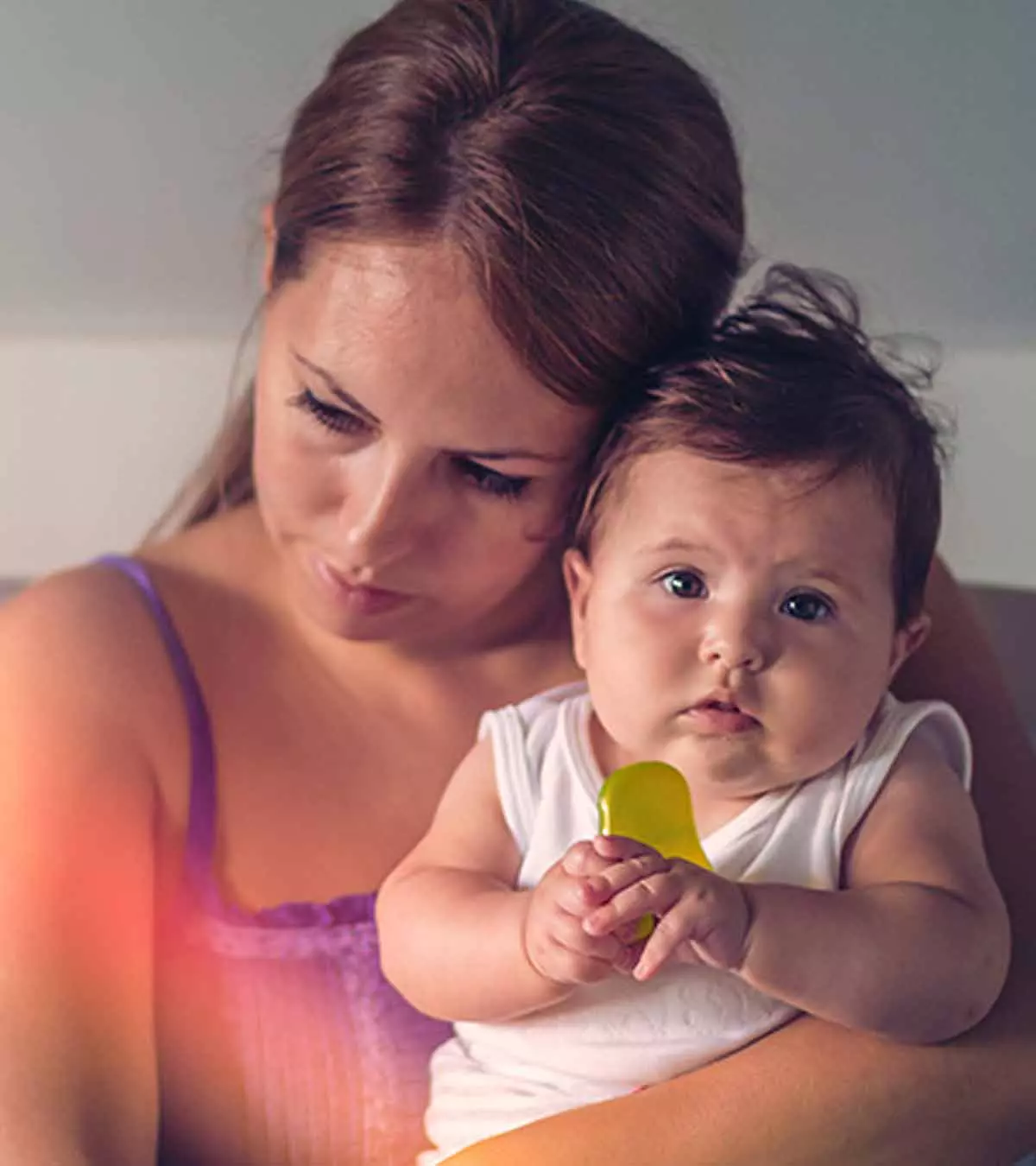
Image: iStock
C-section or cesarean delivery is a surgical procedure to deliver a baby. The onset of the first period after a C-section may not differ from that after a vaginal delivery. However, it depends on an individual’s body, hormone status, and breastfeeding frequency after delivery. Pregnant women do not have their menstrual periods for the full duration of their gestationiThe period when a fetus develops inside the womb until it is born. or even more, but the cycle gradually reestablishes after delivery. Read this post to understand the factors influencing the return of periods after C-section and when it can be a cause for concern.
Key Pointers
- Your nursing pattern, hormonal levels, and health factors affect your first period after a c-section.
- If exclusively breastfeeding, your period may not resume until weaning, otherwise, it may return in 5 to 6 weeks.
- Hormonal changes when your period returns can impact breast milk production and your child’s response.
- Consult your OB-GYN if your periods do not return to normal or if there are any unusual changes.
When Do You Have Your First Period After C-Section?
‘When to expect the first period after breastfeeding’ is a common question that new mothers might have. The return of your period usually depends on your breastfeeding pattern, and how soon your hormones return to normalcy, because the levels of estrogen and progesteroneiA female hormone responsible for menstruation and pregnancy. hormones may drop after pregnancy. These points will address one of the most common queries among women after cesarean, including, ‘When should I expect my period after a c-section?’’
- If you are exclusively breastfeeding, you may not get your period back until you wean your baby. It may take several months to even a year for your menstruation to resume (4).

- If you are not breastfeeding or partially breastfeeding, you may get your period back in five to six weeks after delivery (1).
Will C-Section Delay Your First Period?
Having a C-section may not delay your period and menstrual bleeding, after surgery. The return of the menstrual cycle is likely to be influenced by certain factors such as breastfeeding, hormones, and health conditions before and after pregnancy.
What Factors Affect Menstruation After C-Section?
The hormonal changes that take place in the body after delivery may have a significant effect on the first few periods. This could depend on the:
- Health issues you had before pregnancy
- Changing hormonal levels
- Irregular menstruation before your pregnancy
A few other factors that may affect your postoperative menstruation are:

- Stress
- Weight loss or gain
- Exhaustion
- Thyroid disorder
- Irregular physical activity
C-section may not affect the start of your first period, but it could change the way you bleed.
How Is Your Period Different After Pregnancy?
The period after C-section or vaginal delivery may not be the same as the one before pregnancy.
The body is once again adjusting to the menstrual cycle, and therefore it may differ from the pre-pregnancy period in various aspects (1).
- Heavy flow: The bleeding could be heavy during the first period after C-section. One of the reasons is the surgical incision on the uterine wall.
 Quick fact
Quick fact- Bright red: The first-period blood that is formed after the clearing of uterine tissue is fresh, and could be bright red.
- Lasts longer: Menstrual bleeding after childbirth usually continues for seven days like a normal period. But most of them may have heavy bleeding for four to five days, followed by lighter bleeding for a longer time.
- Irregular periods: Factors such as pregnancy weight gain or loss, stress, and thyroid problems might make the menstrual cycle irregular.
- Blood clots: Dark color or bright red clots may be released, especially when the first period is heavy.
You are likely to have heavy bleeding in cases such as thyroid problems or adenomyosis (thickening of the uterine wall), and lighter bleeding if you had conditions such as endometriosis (the tissue grows outside the uterus), Asherman syndrome (existence of scar tissue in the uterus) and Sheehan syndrome (the damage of pituitary gland) (2) (3).
 Be watchful
Be watchfulIt may take some time for your menstrual cycle changes to get regular. Sometimes, you may not get back your regular periods for months while going through postpartum recovery. Also, you might have the first period, and then experience a break in the cycle before it resumes (4).
Can Postpartum Periods Be Less Painful Than Before?

A study has found that period-related pain was likely to be lesser after childbirth due to the bodily changes brought in by the pregnancy (5).
 Research finds
Research findsWhy Is Your First Period Delayed When Breastfeeding?
Your first period could be delayed if you are breastfeeding because of the hormones produced by the body. ProlactiniA hormone produced by the pituitary gland which causes the breasts to grow, develop and produce milk. , which is needed for breast milk production, might suppress the reproductive hormones (6). Therefore, you may not ovulate or produce an egg for fertilization. As a result, your first period may be delayed until after you stop or limit breastfeeding.
Will The First Period Affect The Breast Milk?
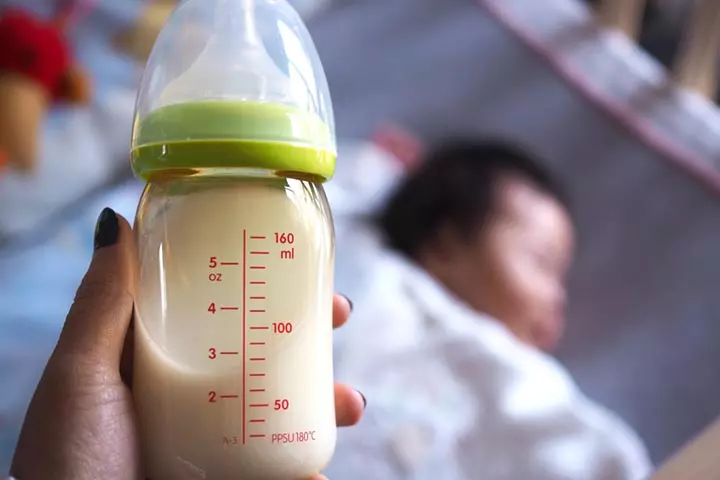
You might see some changes in your breast milk supply or your baby’s reaction to milk when your period returns. Hormonal changes could result in:
- A decrease in milk supply
- Changes in the frequency of nursing
- Composition and taste of the milk
These changes are sparse and may not affect your breastfeeding ability (7).
When To Meet The Doctor?
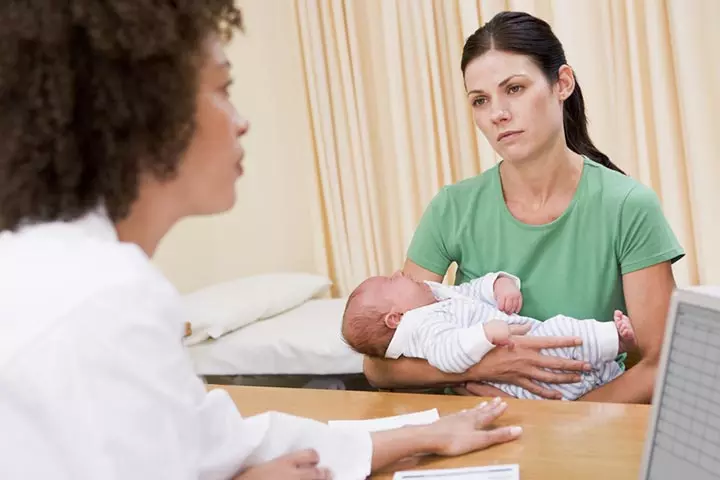
Does the question ‘How long does the first period after a C-section last?’ constantly bother you? If your periods do not become normal even after a few months, and you notice some unusual changes, you should check with your doctor. You may also consult the doctor in the below instances:
- Soaking more than one pad in one or two hours
- Heavy bleeding with pain
- Sudden fever and severe headache
- Blood clots that are bigger and unusual
- Foul-smelling period
- Pain during urination
- Difficulty in breathing
First Period After C-Section And Tubal Ligation
Tubal ligation (tying of the fallopian tubesiA pair of ducts that connect the ovaries and the uterus. to prevent future pregnancies) after the C-section does not affect your first period. The period might be heavy, but that is nothing to worry about (8). If you are sure of having a tubal ligation after the current pregnancy, then you may consider having that done at the time of C-section itself to avoid additional incisions and anesthesia.
Frequently Asked Questions
1. Why does my C-section scar hurt during my period?
If your scar hurts during periods, it could be a case of endometriosis (10). You may consult your healthcare provider for early diagnosis and treatment.
2. When do periods stop after a C-section?
New moms have vaginal or postpartum discharge after delivery. It is called lochia and is often mistaken for periods. Postpartum bleeding is a mixture of mucus, uterine tissue, and blood. It may last for several weeks (11). You may get your first period after 5-6 weeks after pregnancy and may continue for up to seven days with heavy bleeding in the first few days (1).
3. Will my fertility be affected after a C-section?
Smaller studies have shown that the fertility of women who have undergone C-sections is lesser than those who had a vaginal delivery (12). However, other studies also indicate no correlation; hence, it is unknown whether there is any association between fertility and obstetric surgery.
4. Can I get pregnant before my first period returns after childbirth?
Yes, you can get pregnant as early as three weeks after childbirth, even if you are breastfeeding and haven’t had your first period yet (13).
If you had a C-section delivery, know that it has no influence on your first period after delivery, but an individual’s health, hormone levels, and breastfeeding frequency affect the period after birth. The first period after C-section might be heavy and painful or light and painless. It can also occur shortly after delivery for some mothers, while it may take months for others, especially those who are exclusively breastfeeding their babies. Moreover, the menstrual cycle may sometimes be irregular for a few months. However, if you have any unusual symptoms, you should consult your doctor.
Infographic: How Is Your Period Different After Pregnancy
Having spent nine months without menstruation, it is natural that the periods after pregnancy may differ in terms of flow, duration, and other factors. So if you are about to give birth and worried about the revival of your periods, this infographic will help you learn what to expect and thus stay prepared. Illustration: Momjunction Design Team
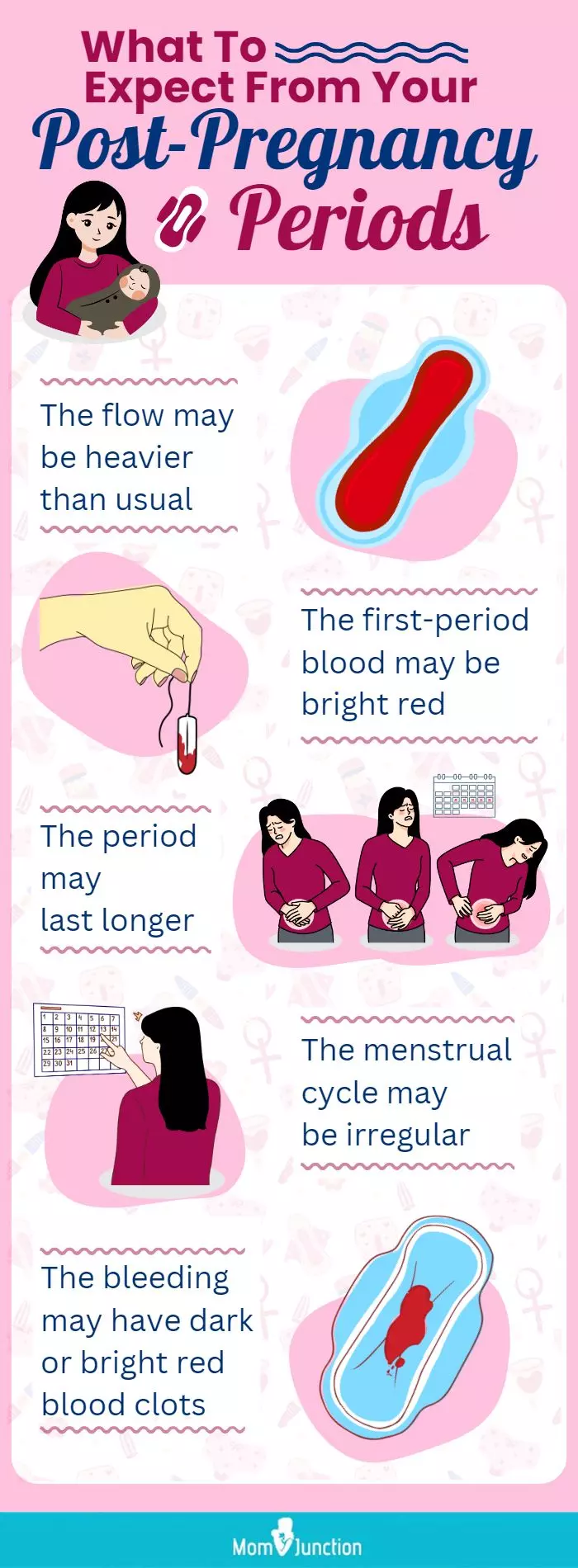
Illustration: First Period After C Section: What To Expect?
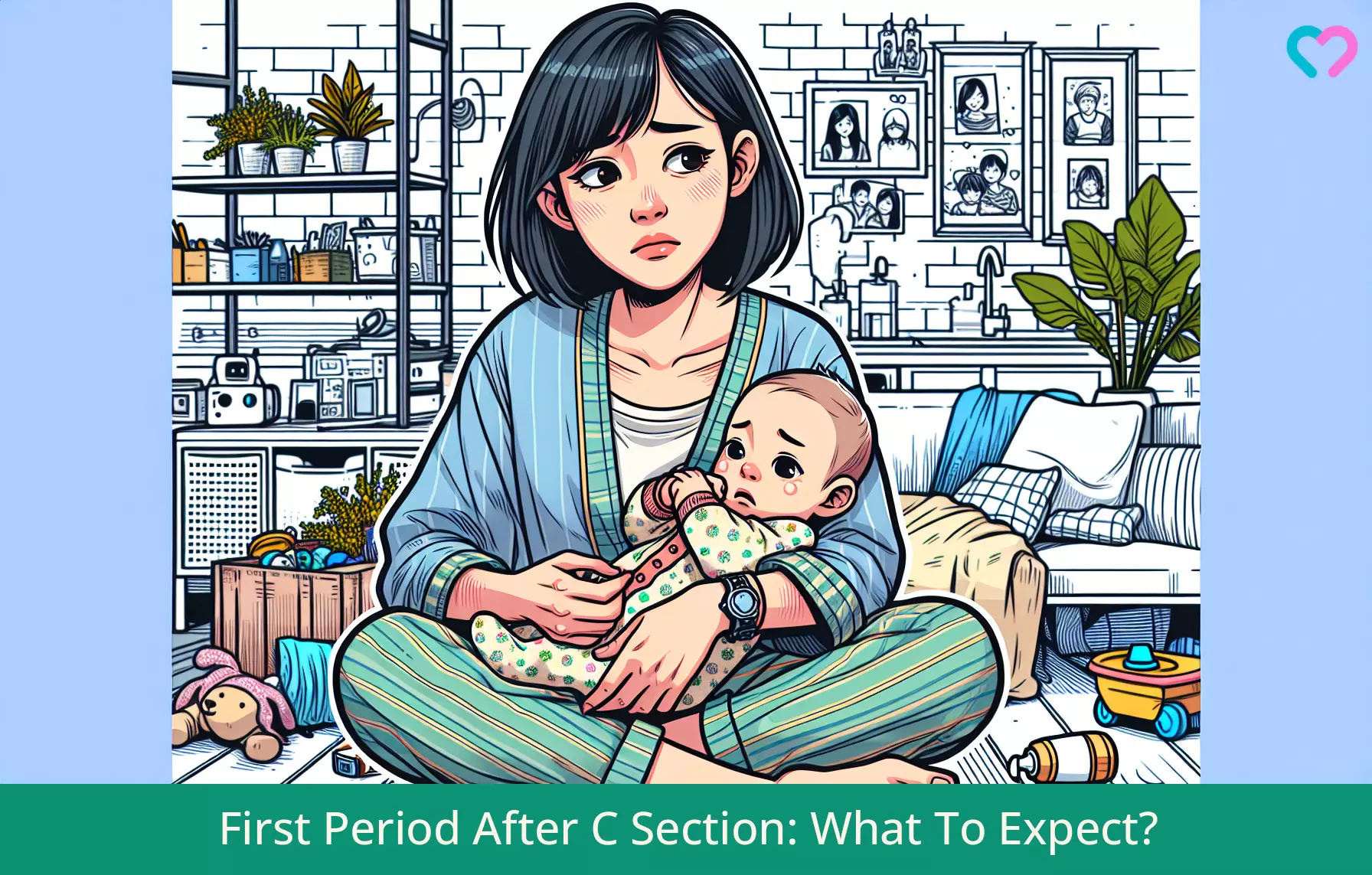
Image: Dall·E/MomJunction Design Team
References
1. When will my periods start again after pregnancy?; NHS (2018)
2. Vaginal or uterine bleeding – overview; U.S. Department of Health and Human Services National Institutes of Health (2019)
3. Do Your Periods Change After Pregnancy; Cleveland Clinic (2019)
4. Breastfeeding and periods; Healthdirect (2017)
5. Mahboobe Firouzi, et al.; Comparing the pattern of primary dysmenorrhea before and after childbirth; Journal of Midwifery and Reproductive Health (2019)
6. Marc E. Freeman et al.; Prolactin: structure, function, and regulation of secretion; American Physiological Society Physiological Reviews
7. Menstruation And Breastfeeding; La Leche League International
8. Shahideh Jahanian Sadatmahalleh et al.; Menstrual Pattern following Tubal Ligation: A Historical Cohort Study; Int J Fertil Steril. (2016)
9. Will my period change after pregnancy?; UT Southwestern Medical Center
10. Scar endometriosis at the site of cesarean section; National Library of Medicine
11. Lochia; Cleveland Clinic
12. Impact of Caesarean section on subsequent fertility: a systematic review and meta-analysis; National Library of Medicine
13. Your sexual and reproductive health after having a baby; Tommy’s
Community Experiences
Join the conversation and become a part of our nurturing community! Share your stories, experiences, and insights to connect with fellow parents.
Read full bio of Dr. Shivani Chaturvedi
Read full bio of Rebecca Malachi
Read full bio of Swati Patwal
Read full bio of Aneesha Amonz






